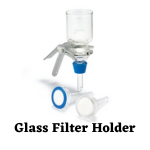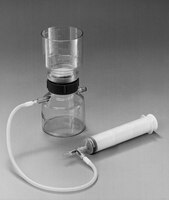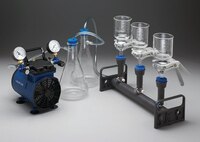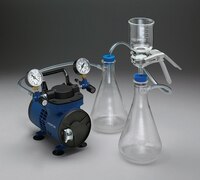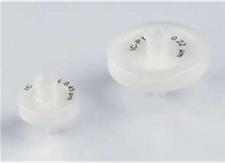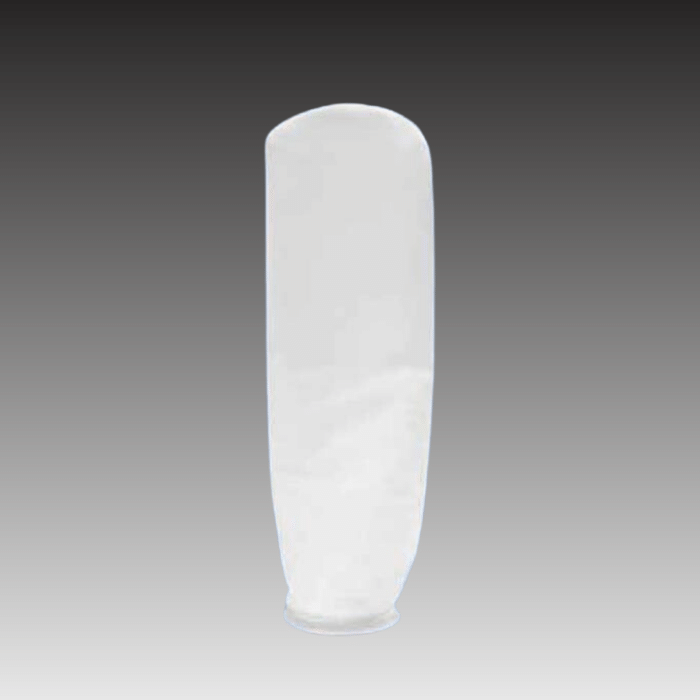Technical Specifications |
|
| Materials | Borosilicate glass, with coarse-frit glass filter support for the filter, anodized spring clamp, Silicone stopper filter |
| Filter Size | 47mm diameter filter |
| Filter Area | Approximately 9.6 cm |
| Funnel Capacity | 300mL |
| Pressure | Vacuum only |
| Connection | No. 8 perforated stopper mounts in standard 1-liter filtering flask or Filtering manifolds (available separately) |
| Dimensions | 78 mm funnel diameter, 225 mm overall height |
| Sterilization | The filter can be sterilized using a UV Sterilizer (2-3 min), Autoclave (20 min at 121°C) |
| Sanitization | Sulfuric acid or hydrochloric acid |
Ordering Information of Glass Filter Holder – 47mm :
Glass Filter Holder Description Glass Filter Holder, 47 mm, Complete (Including funnel, base, stopper, clamp, and flask)
The Glass filter holder includes the following replacement parts Funnel, 300 mL, ground glass seal Anodized Aluminum spring clamp Ground glass base with stopper No. 8 silicone stopper, 14 mm (9/16”) hole, 5/Pk Vacuum filtering flask, 1 liter Recommended Accessories Vacuum/Pressure pump, 220V, 50 Hz Vacuum hose, silicone, 1.4m (4.5′) Filter forceps, stainless, smooth-tip Vacuum Trap kit
various uses of Glass filter holder -47mm in laboratory
1. Particulate Contamination Analysis:
The primary design of the filter holder is to facilitate the filtration of aqueous, organic, or acidic liquids for analyzing particulate contamination. It allows researchers to separate and analyze particulate matter present in the liquid samples.
2. HPLC Solvent Preparation:
Researchers can also utilize the filter holder for preparing HPLC solvents. It helps remove any particulate impurities or contaminants from the solvent, ensuring clean and reliable solvents for high-performance liquid chromatography applications.
3. General Filtration:
Researchers can use the glass filter holder for general filtration purposes in various laboratory procedures. It provides a convenient and effective way to filter liquids and separate them from unwanted particles or debris.
4. Sample Preparation:
Researchers commonly employ the filter holder in sample preparation protocols to aid in the purification and concentration of samples by removing impurities and unwanted particles.
5. Microbiological Analysis:
In microbiology labs, the glass filter holder serves a crucial role in filtering liquid samples for microbiological analysis. Moreover, it effectively aids in the separation of microbial cells or organisms from the liquid medium, facilitating subsequent analysis and culture.

